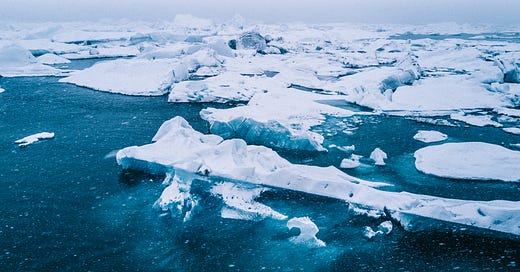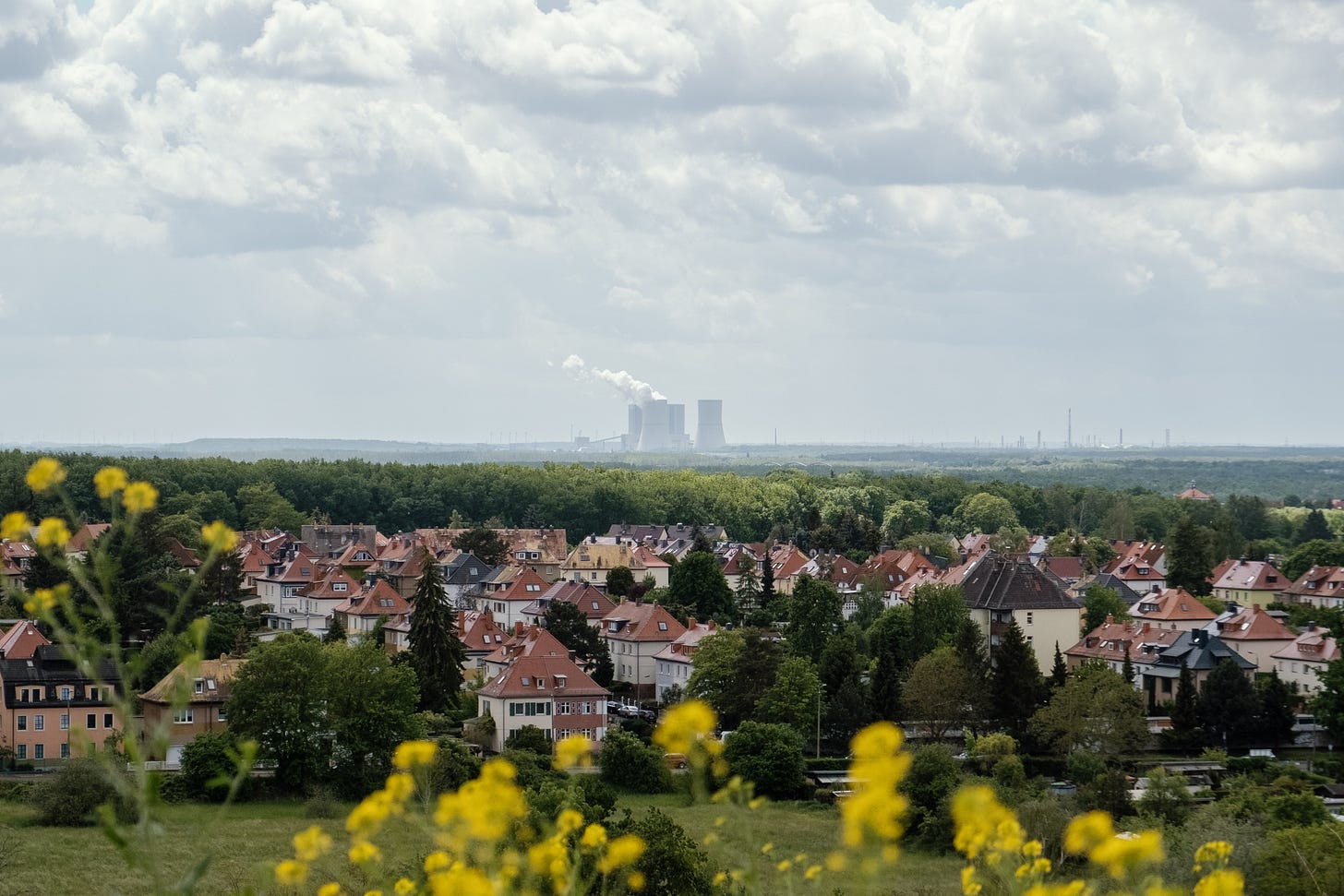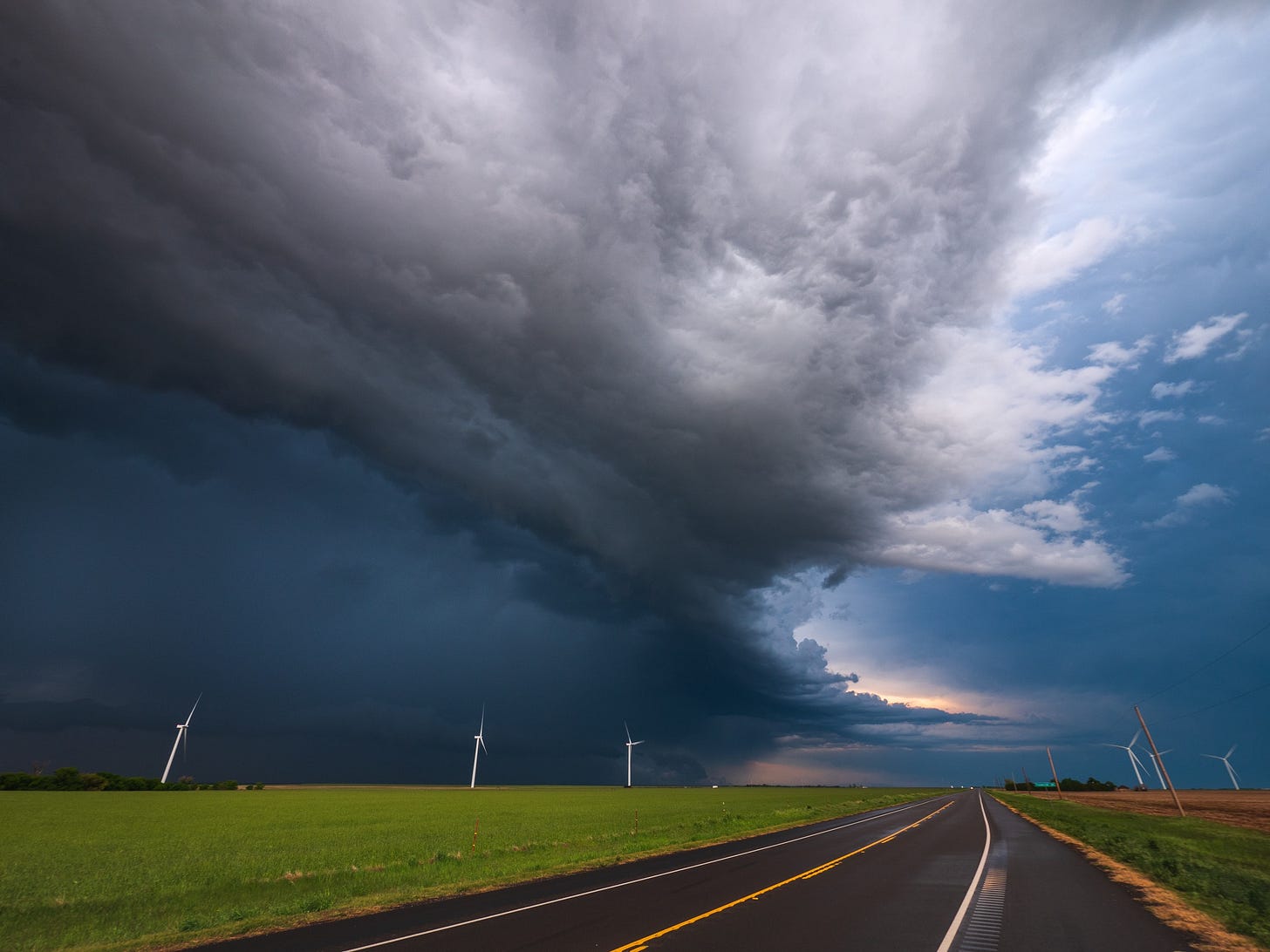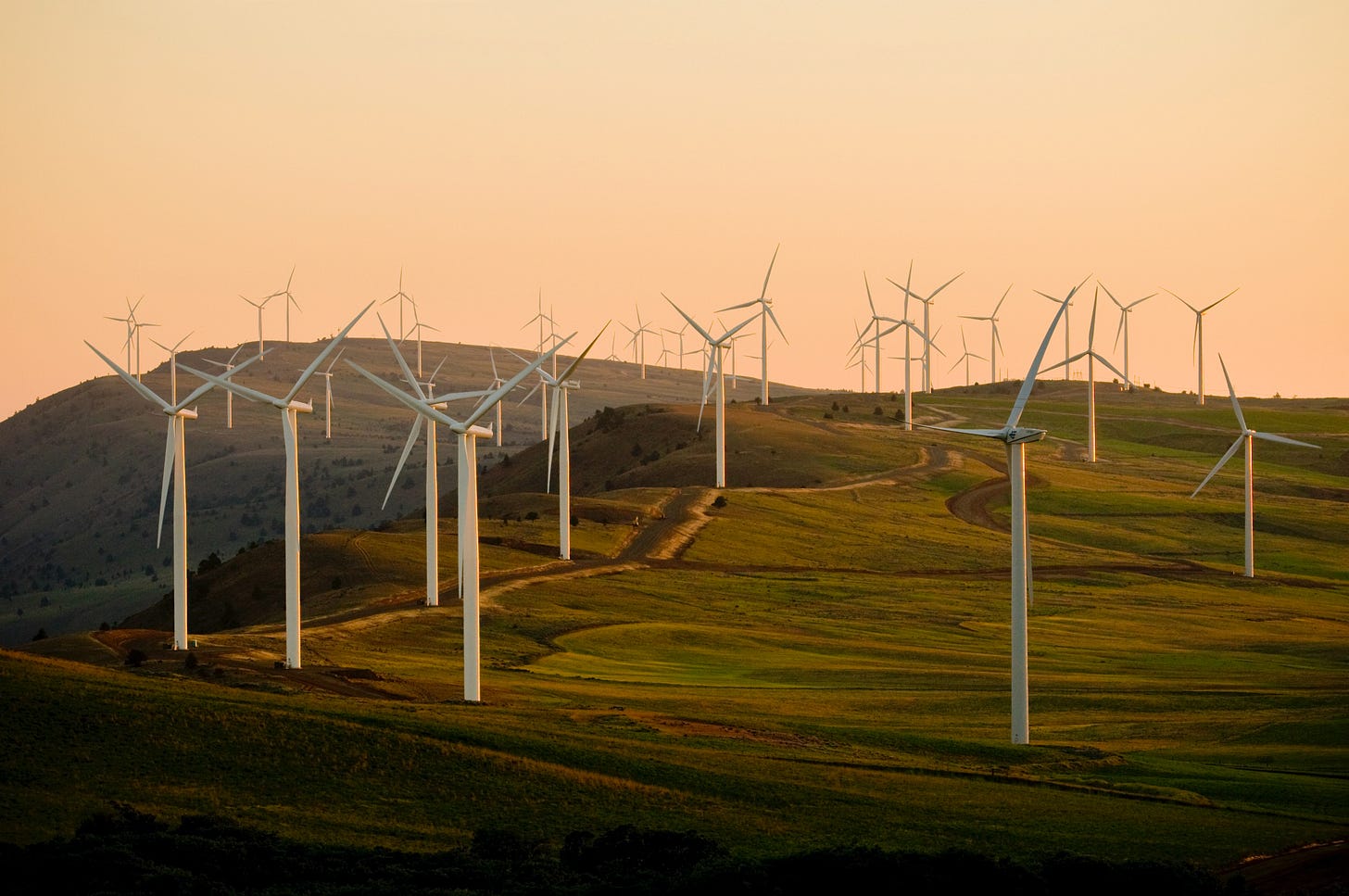Antarctica is barely hanging on
Plus, the death of Build Back Better, super typhoon Rai, and the rise of coal.
Welcome to Planet Days, a five-minute roundup of the latest climate news and what it means for our Planet. If this was forwarded to you, smash that subscribe button:
Last week, flash floods devastated northern Iraq, Russia vetoed a key U.N. climate-security resolution, and New York City voted to ban gas for heating in new buildings.
In case you missed it, here’s what else happened around the Planet:
Tuesday, December 14
Antarctica is barely hanging on
The poles are in trouble. On Monday, scientists warned that climate change is chipping away at Antarctica’s Thwaites Glacier. Should the Florida-sized glacier collapse entirely, global sea levels will rise several feet — something that could happen in five years or several decades. The Washington Post explains exactly what’s happening.
Meanwhile, climate change is altering winds in the Southern Ocean, bringing to the surface deep water that has held carbon for centuries. Combine that with warming waters that slide under ice sheets, and it’s clear that climate change is upending the Antarctic. The New York Times breaks it down in this interactive graphic.
On the other side of the Planet, the Arctic is looking just as rough. The 16th annual Arctic Report Card finds that climate change is driving sea ice loss, increased rainfall and melt, and even beaver migration. The Conversation unpacks the report’s key takeaways.
Biden misled on oil and gas leases
When it comes to oil and gas leases, we’ve previously defended the Biden administration. But a new Guardian investigation shows we may have been misled.
Despite claims that the administration’s hands were tied by courts, the investigation finds that last month the federal government voluntarily held the largest-ever auction of oil and gas drilling leases in the Gulf.
Before the sale, a Department of Justice memo said that though the court blocked Biden’s executive order to suspend oil and gas leases on federal lands, it did not force the government to auction off drilling rights.
Wednesday, December 15
People of color breathe more polluted air
We’ve known for a while that people with lower incomes face greater pollution exposure than their wealthy neighbors, but a new study finds racial and ethnic disparities, more so than income level, decide the quality of the air we breathe.
The paper supports previous research: Decades of segregation and racist housing policies have pushed people of color closer to highways, power plants, and other sources of pollution. But unlike other studies, which focus on specific locations during particular times, the study looks at 48 states and Washington, D.C., across decades.
“This paper is a chance to recognize that, while every community is unique, there are some factors that play out over and over again consistently across our country,” senior author Julian Marshall said in a press release. “If we go state by state, there’s no place where there are no environmental justice concerns.” Grist has more.
Thursday, December 16
So much for Build Back Better
After months of negotiations — and assurances from Senate Majority Leader Chuck Schumer (D-NY) that it would be passed by Christmas — President Joe Biden finally conceded that his sweeping climate and social spending bill, the Build Back Better Act, would not be passed this year, reports POLITICO.
Perhaps dealing a fatal blow to the bill, centrist Sen. Joe Manchin (D-WV), who has publicly balked at the size of the bill, said Saturday that he “cannot vote to continue with this piece of legislation… I’ve tried everything humanly possible. I can’t get there.”
For the record, Manchin hails from a coal-heavy state and much of his personal finances are tied up in Big Coal. The New York Times has the story.
Another wild weather week
The wild weather keeps coming in the United States. Hurricane-strength winds slammed the middle of the country, leaving more than 500,000 customers from Colorado to Michigan without power.
The strong winds whipped up Dust Bowl-like debris, which combined with record-high temperatures, spread wildfires across the region, reports USA TODAY.
The weather disasters follow a record weekend of tornadoes, which left 78 Kentuckians dead. Before we jump to conclusions, the link between climate change and tornadoes is still scientifically shaky.
Super Typhoon Rai rips through the Philippines
At least 14 people are dead and seven missing after Super Typhoon Rai tore through the Philippines on Thursday, reports Reuters.
Rai — the 15th typhoon to hit the islands this year — would have been classified as a Category 5 hurricane in the U.S., with sustained winds of 120 miles per hour. And while the Philippines expects an average of 20 storms each year, experts warn that they’re becoming more serious because of climate change.
Friday, December 17
Coal may soon hit record high
Coal is still king. Only a month after the world agreed to “phase down” coal power at COP26, a new International Energy Agency report finds that the dirty fossil fuel is bouncing back.
Globally, coal power is expected to jump 9% in 2021 — that’s on top of a 6% jump in coal demand for other uses, such as for cement and steel production. The rebound is driven by global economic recovery, as well as increases in natural gas prices, which has kept coal cost-competitive.
“Without strong and immediate actions by governments to tackle coal emissions – in a way that is fair, affordable and secure for those affected – we will have little chance, if any at all, of limiting global warming to 1.5 degrees Celsius,” IEA Executive Director Fatih Birol said in a statement. Reuters has the story.
Bonus
Good news from 2021
As you look back on the last year, what will you remember? The second full year of a raging pandemic? The increasingly intense storms? Another year of climate inaction?
We don’t need all that negative energy in 2022. And thanks to WIRED, we can look back on some of the good things that happened in 2021 (and there are plenty).
Have a good week,
Brandon and Sam








